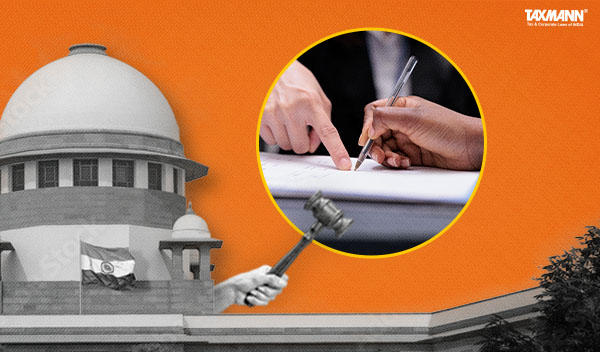HC Overturns Arbitrator’s Award for Compelling Retiring Partner to Sign Faulty Financials
- News|Blog|Company Law|
- 2 Min Read
- By Taxmann
- |
- Last Updated on 1 August, 2024

Case Details: Prashant Mohta v. Manoj Kumar Bothra - [2024] 164 taxmann.com 785 (HC-Calcutta)
Judiciary and Counsel Details
- Sabyasachi Bhattacharyya, j.
- Anirban Ray, Debangshu Dinda, Snehal Kakrania & Ms Nikita Khaitan, Advs. for the Petitioner.
- Sarvapriya Mukherjee, Shoham Sanyal & Kunal Saraogi, Advs. for the Respondent.
Facts of the Case
In the instant case, the appellant was a partner with respondents in a partnership firm. The appellant executed a deed of retirement. However, a dispute arose between the parties regarding the appellant’s dues from the firm. The appellant invoked an arbitration clause in the deed, and an arbitrator was appointed.
The appellant filed his statement of claim, alleging that respondents manipulated the accounts to ensure that the books of accounts reflected the firm’s loss of business. The appellant sought an enquiry into the firm’s accounts for the period immediately before the execution of the retirement deed by appointment of an independent auditor.
An independent auditor was appointed. The Respondents filed an application under section 17 of the Arbitration and Conciliation Act, 1996, and the arbitrator passed the impugned order directing the appellant to sign financial statements, balance sheets and profit and loss accounts of the partnership firm prepared by the respondents.
On appeal, the appellant submitted that the arbitrator did not have jurisdiction to pass binding directions on statutory authorities within the limited scope of the arbitral proceeding. If the appellant was forced to sign incorrect entries, he would be liable to penal action under sections 271 and 271A of the Income Tax Act.
It was noted that if financial statements, which were faulty as per the appellant’s allegation, were filed with income tax returns, failure to keep proper books of account and documents would invite penalty on the partnership firm and the petitioner.
High Court Held
The High Court observed that if the petitioner was compelled to sign the said financial statement, nothing in the impugned order could protect him from the penal consequences of such misstatement and concealment, as well as an inaccurate depiction of accounts, if penal action was taken by the Income Tax Authorities.
The High Court held that the appellant could not be compelled, at least at this stage, to sign the financial statements he challenged before deciding the veracity of accounts and before passing the final award upon assessment of evidence.
Further, the High Court held that since the impugned order suffered from an utter lack of jurisdiction and authority and was vitiated by a patent misreading of provisions of sections 271 and 271A of the Income Tax Act, 1961, the impugned order was to be set aside.
Disclaimer: The content/information published on the website is only for general information of the user and shall not be construed as legal advice. While the Taxmann has exercised reasonable efforts to ensure the veracity of information/content published, Taxmann shall be under no liability in any manner whatsoever for incorrect information, if any.



 CA | CS | CMA
CA | CS | CMA
